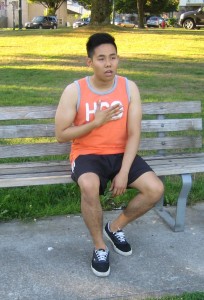Insulin shock happens anytime when there is an imbalance between the insulin in the system, the amount food being eaten and the level of physical activities.
A person with high risk of insulin shock is a diabetic. Those who are diagnosed with diabetes who are dependent on insulin take injection during the day to manage the poor secretion of insulin by the pancreas. Sometimes, the body is given too excess insulin after an injection and result to insulin shock. This can occur within 15 minutes after using rapid-short acting insulin and several hours if taking a long-acting type of insulin.
Symptoms of insulin shock
- Palpitations
The skin becomes cool and pale when the symptoms becomes severe. - Increased heart rate
- Sweating
- Headache
- Extreme hunger
- Unaware of the surroundings
- Irritability, anger and aggression
- Nervousness
- Dizziness
- The skin becomes cool and pale when the symptoms becomes severe
- Seizures, severe weakness, slurred speech and eventually passing out.
Treatment
- Respond immediately by bringing the level of blood sugar back to normal. If the person is conscious, give him/her sugary foods such as hard glucose candies, sugar, honey, boiled sweets and sugary drinks such as fuit juice, soda and milk to stabilize the blood sugar levels and lessen the symptoms.
- If glucose tablets are available, give the affected person at least 3 glucose tablets.
- Wait for 5 minutes if the symptoms are improving. If the symptoms decrease, give the person sandwiches, banana or a cookie that takes a longer time to digest to prevent energy crash that can happen after eating plenty of sugar.
- If the sugar levels become normal, continue with the regular meal schedule.
- If the blood sugar level does not improve within 10-15 minutes after giving glucose, becomes unconscious and develops a seizure, seek medical help immediately.
- The emergency team will give direct glucose to the bloodstream and perform cardiopulmonary resuscitation (CPR) if he/she stopped breathing and progressed to cardiac arrest.
Tips
- Avoid skipping meals and consume small meals throughout the day.
- Always carry glucose tablets or hard candies in case of emergencies.
- Eat meals after taking an insulin shot to prevent insulin shock.
- Avoid drinking alcohol on an empty stomach.
- Test the blood sugar regularly
- Keep sugary snacks on hand when performing exercises. Seek the help of a dietitian for suitable foods to consume before performing exercises.
- Consult a doctor first when using a new medication.
- Always keep glucagon available if using insulin.

